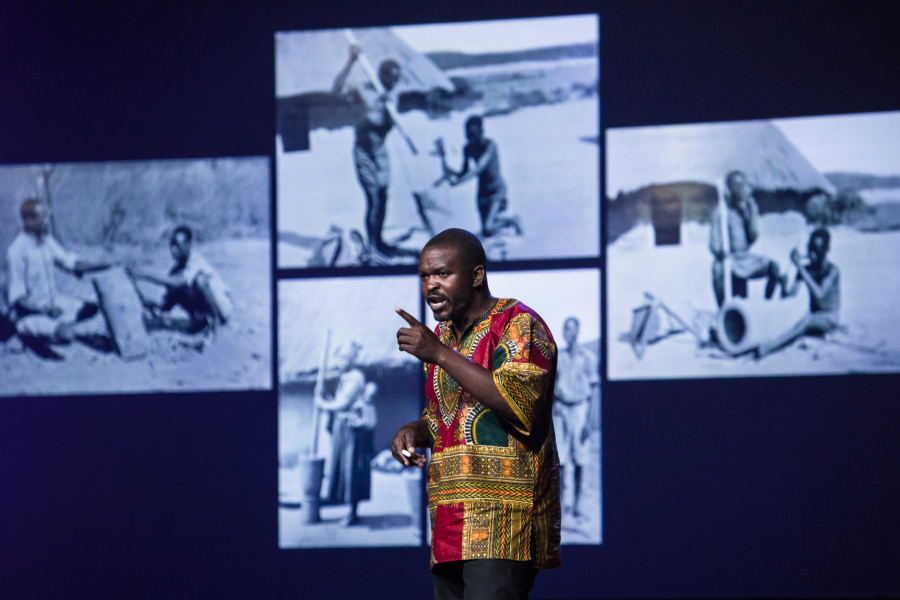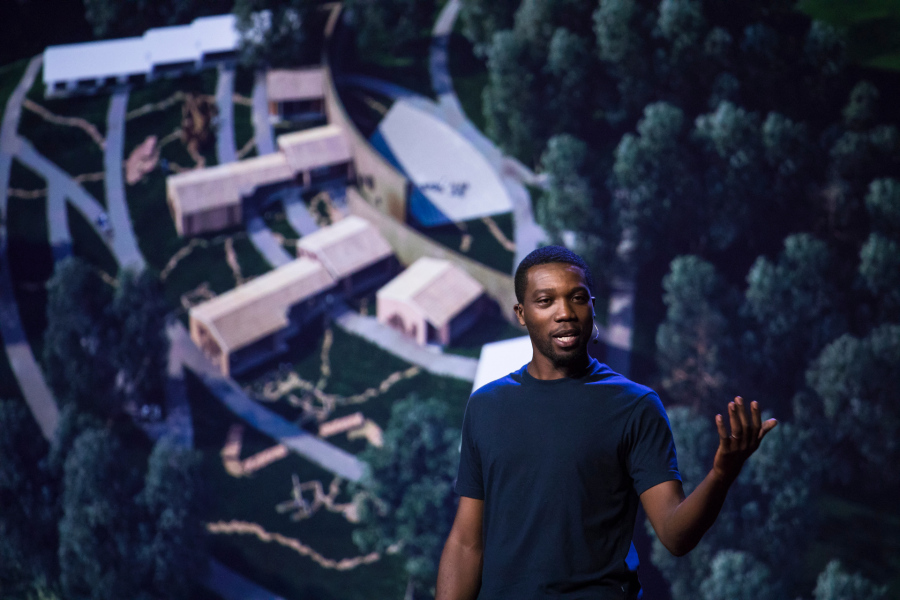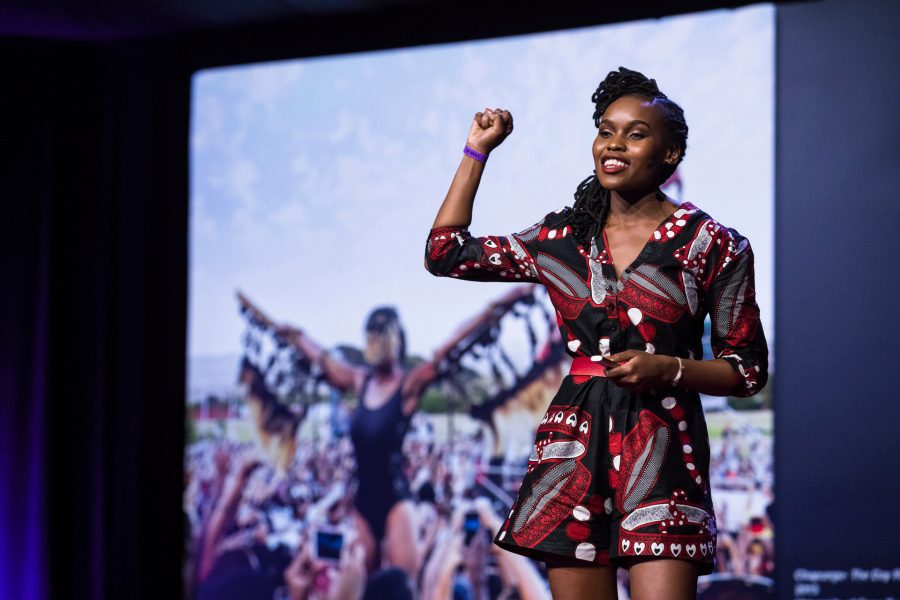TEDGlobal 2017 Tanzania Session 8 – Manifestos and Destinies

TEDGlobal 2017 Session 8 is the last session and the part where attendees declare their intent to take all they have learned and proceed with a purpose to change the world.
TEDGlobal 2017 Session 8 Speakers
This session kicks off with a few minutes of audience feedback, with a lineup for the mic and 60 seconds each on the clock — including a solid shout-out to Ghada Wali, a report from the flooding in Houston, Texas, and a stirring manifesto from Ory Okolloh. An excerpt:
We are called upon to decolonize our spaces, our education, and our minds.
We are called upon to resist
We are called upon to be courageous
We are called upon to own our culture (and by own I mean get paid). Nigerian music is leading the way — hi, Sauti Sol!
We are called upon to make democracy work. Development is not inconsistent with freedom.
In the final session of TEDGlobal 2017, Maritius’ president, Ameenah Gurib-Fakim graced the stage in person. She is the only Muslim female head of state currently in office in Africa. But this is hardly her only remarkable achievement. Gurib-Fakim is also a biodiversity scientist and no stranger to TED. She gave a TED Talk in 2014 about her five favorite plants.
Yvonne Chioma Mbanefo recollects how as a child she would get into trouble in school for speaking in her native tongue, Igbo — and says that “in many schools across Africa today, children are still being punished for speaking their indigenous languages.” It’s why Chioma Mbanefo has created micro-language lessons and illustrated dictionaries to help children learn the Igbo language. Next stop: more languages.
 Yvonne Chioma Mbanefo created language lessons to teach her kids — and the world’s kids — her own native language, Igbo — to preserve it for generations to come. Photo: Ryan Lash / TED
Yvonne Chioma Mbanefo created language lessons to teach her kids — and the world’s kids — her own native language, Igbo — to preserve it for generations to come. Photo: Ryan Lash / TED
Clapperton Chakanetsa Mavhunga is training thinker-doers and problem solvers. This will require an entirely new curriculum, he says. “The curriculum we are designing shifts attention from merely meeting the needs of foreign industry towards producing visionaries, critical thinkers, makers, and designers, to imagine and create new industry that meets the needs of society.”
 Clapperton Mavhunga asks us to lean toward problems. Photo: Bret Hartman / TED
Clapperton Mavhunga asks us to lean toward problems. Photo: Bret Hartman / TED
Dayo Ogunyemi believes in the transformative power of film — and his talk uses strong imagery as a springboard to examine Africa’s self-image. He leads us through a thought exercise called the 100-year leap: Imagine stepping back in time to the year 1917. Now imagine that same world but with semiconductors, modern medicines, jets. Dayo suggests that Africa’s untapped innovation could lead to just as big a jump — a century’s worth of progress — if it can only be unleashed.
 Dayo Ogunyemi speaks in front of a still from Rungano Nyoni’s film “I Am Not a Witch,” a story of Zambia that brought a challenging new vision to the Cannes Film Festival this year. But what matters, Dayo suggests, is not so much the international festival crowd, but what Africans think of their own creators. Photo: Bret Hartman / TED
Dayo Ogunyemi speaks in front of a still from Rungano Nyoni’s film “I Am Not a Witch,” a story of Zambia that brought a challenging new vision to the Cannes Film Festival this year. But what matters, Dayo suggests, is not so much the international festival crowd, but what Africans think of their own creators. Photo: Bret Hartman / TED
Kisilu Musya quit his job in the city to become a farmer. But for years, he struggled. Failed crops made it difficult to put food on the table and send his children to school. When he consulted the other farmers who lived near him, he discovered that his situation wasn’t unique. His thirst for a solution drove him to enroll in agricultural courses, where he learned how climate change had shifted the realities of growing crops. Musya took his newly acquired knowledge back to his community. He reports that the techniques they would execute together, saw them achieve three times the yield they were accustomed to seeing when harvest time came.
 Kisilu Musya found his voice as a farmer, a community leader and a filmmaker, telling the story of a community effort to grow food and face climate change. Photo: Bret Hartman / TED
Kisilu Musya found his voice as a farmer, a community leader and a filmmaker, telling the story of a community effort to grow food and face climate change. Photo: Bret Hartman / TED
All Sessions
Session 1 – A New Map
Session 2 – A Path Forward
Session 3 – One Jump Forward
Session 4 – Exploring hard truths
Session 5 – Visual Thinking
Session 6 – Urban 3.0
Session 7 – Power Up
Session 8 – Manifestos







Responses